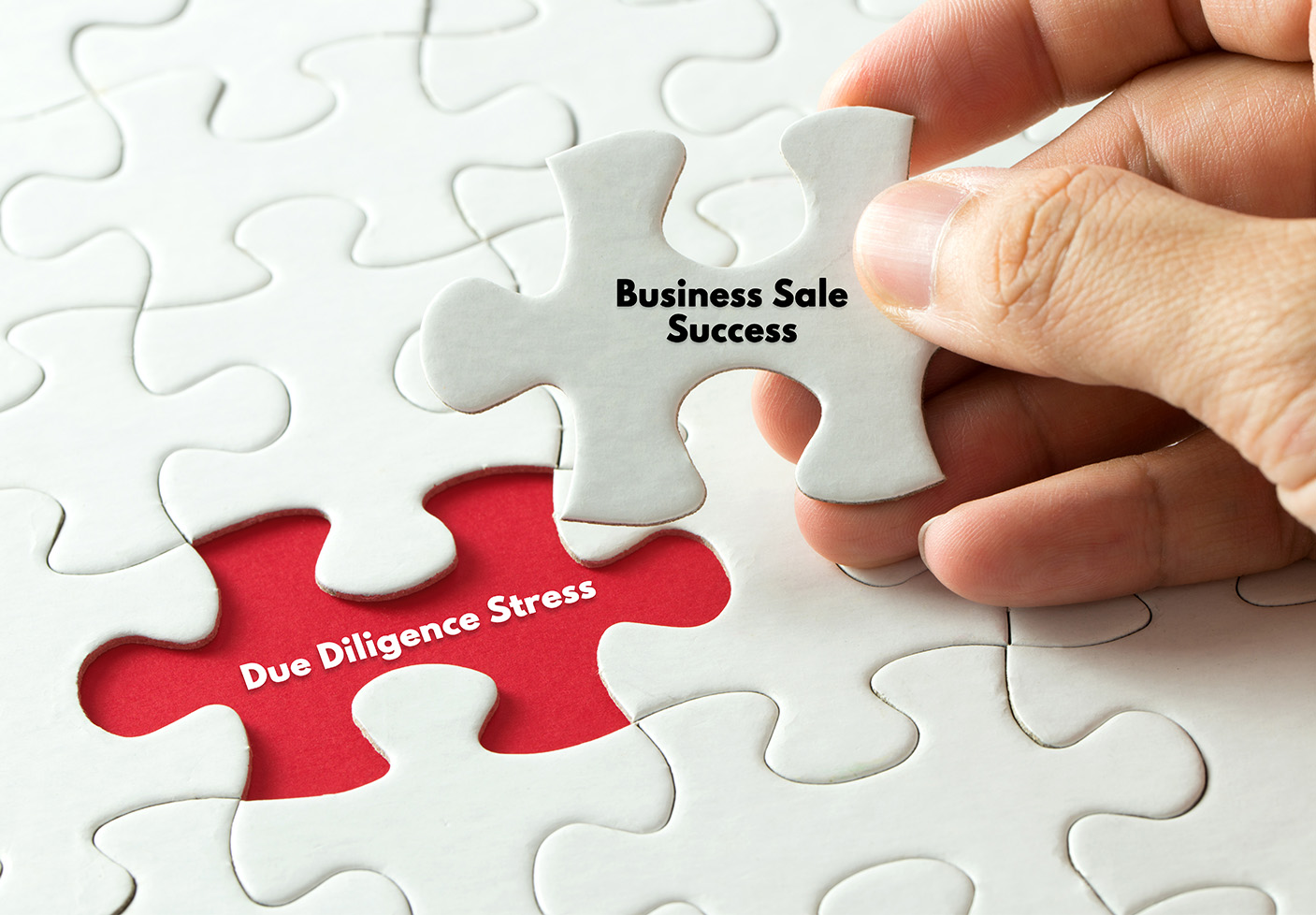It’s a common misconception amongst business owners that the hardest part of selling a business is finding a willing buyer. The reality for many business sale deals is that even once an offer and acceptance is negotiated you may not be at the halfway point in your business sale journey.
Frequently business owners find the final stage of investigation and evaluation, or due diligence, to be a very challenging and stressful time. With the buyer looking to confirm the accuracy of the sellers claims and identify potential risks the owner can take these investigations as a challenge to their integrity. Additionally, the buyer can ask blunt questions from arms lengths advisers (eg. their accountant of lender), who have limited appreciation of the people involved in the transaction.
The good news is that there are many simple ways a business owner can prepare for the due diligence phase to maintain the all-important deal momentum. The key is knowing what a buyer will be looking for and having this information ready and up to date before it is requested. Ideally a business owner, with the help of their advisers will have already reviewed these resources. The best prepared owners will have ensured that any potential red flags for a buyer have been addressed and explained as fully as possible.
The most common due diligence focus areas for buyers include:
1. Financials – including in depth review of profit and loss statements, cross checking with ATO submissions including BAS and tax returns. Additional attention can be paid to any expenses claimed as an addback, so owners should be prepared to substantiate these claims. Financial due diligence at some level occurs in practically every business sale, with the only rare exception being if the business is no longer a going concern.
Preparing for financial due diligence should include substantial pre-sale meetings between the vendor and their accountant, ideally with a business broker providing a buyer’s perspective of the report. Additionally, a business owner should ensure their monthly P&L and BAS submissions are kept up to date.
2. Legal & Compliance – buyers and their legal team will be investigating ownership of property, past or current legal disputes, currency of relevant licences, franchise agreements, approvals and permits. This will often include requiring proof of development approval (D.A.) from council or other government bodies (e.g. State water boards for laundry businesses). All business sales involve a degree of legal/compliance due diligence, but this can ramp up substantially for larger or more complex businesses e.g. construction businesses. At the very least owners should and prepare for analysis of their premises lease, D.A. and operational licences. Owners need to keep a physical and online folder of key documentation and enter renewal date reminders into their calendar.
3. Operational – potential buyers will be looking to understand the current procedures and systems in place, with particular interest in supplier arrangements and agreements with key personnel. The need for this will increase if the seller is highly involved operationally and will be leaving at or soon after the settlement of the business sale. Preparation for operational due diligence can involve documenting key procedures, ensuring staff agreements are current and formalising supplier agreements wherever possible.
4. Customer – whilst providing detailed specific customer information to a potential buyer should be avoided until settlement has occurred, it is normal for a buyer to need to understand certain aspects of a business’s current customer base. A buyer will want to understand aspects such as customer concentration (over-reliance on a small number of large customers), acquisition cost of acquiring new customers, level of repeat business. For most buyers, particularly looking at B2B businesses, their will be a desire for key customers to have a formalised agreement/contract in place. While this is rare in SME if customer contracts are in place, it can add substantially to the transferability of a business, and without these can lead to a more difficult due diligence phase. At the very least, vendors should investigate their sales/bookkeeping software to see what reports can be easily provided and ensure these are accurate and up to date.
5. Assets & Liabilities – analysing the condition of plant, equipment and stock is a critical part of most buyers’ due diligence. Before taking a business to market, vendors should ensure all maintenance has been completed and documented. Any non-functioning equipment should be repaired or disposed of. The higher the claimed value of Stock at Value (SAV) the more likely a buyer will be investigating the condition, saleability and proof of purchase price. Vendors should ensure that all stock being transferred is well organised and still sellable. If inventory is gathering dust, we strongly advise vendors to have a clearance sale and/or dispose of the remainder. We have seen preventable due diligence turbulence regarding the condition of stock on multiple occasions.

Whilst it is typical for the level of due diligence to increase with the value of the business this is not always the case. Increasingly at MMJ Business Sales & Acquisitions we are finding buyers at all values of business purchase and across all industries are undertaking comprehensive due diligence processes across some or all these focus areas.
The most critical part of due diligence preparation for business owners is working with a pro-active deal team. Ideally this will include your accountant, lawyer and a business broker who understands what business buyers are looking for in your industry, price range and geographic area.
The easiest way to test a potential business broker is by requesting a business appraisal. If an appraisal doesn’t involve direct communication and interaction with you as the business owner, it indicates a disengaged business broker. You are more likely to be prepared for the due diligence phase of a business sale if you partner with a broker who wants to learn as much about your business as possible.
A business broker who asks you the tough, investigative questions a buyer will be asking, who digs into your financials and licences, checks your assets and understands your customer base will give you the best chance of progressing through due diligence with less stress and maximum chance of success.

